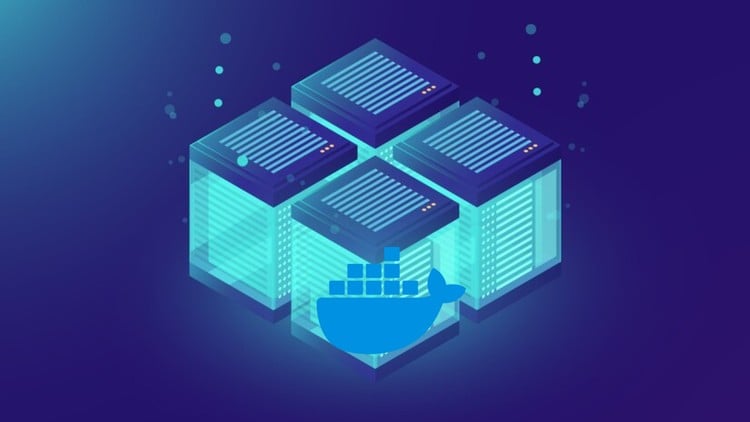Docker Essentials for Cloud and DevOps Professionals

Why take this course?
-
Understanding the Basics: The course starts with the fundamentals of Docker, explaining what containers are, how they differ from virtual machines, and why they are beneficial. It covers the key concepts such as images, containers, registries, and Dockerfiles.
-
Docker Installation and Setup: Learn how to install Docker on various operating systems, including Windows, macOS, and Linux distributions. You'll also understand how to configure Docker to work in your environment.
-
Creating and Managing Containers: This includes writing Dockerfiles, building images, running containers, and managing their lifecycle using Docker commands and best practices.
-
Working with Docker Compose: Learn how to orchestrate multiple containers that work together using Docker Compose files, which simplifies the development and implementation of applications needing several services.
-
Docker Registries and Images: Gain an understanding of Docker Hub and other registries, image layout, tags, and how to push and pull images from these repositories. You'll also learn about private registries for secure storage and distribution of images.
-
Container Networking: Get familiar with networking options within Docker, such as user-defined bridges, networks, and how containers communicate with each other.
-
Security Best Practices: Understand the security aspects of Docker, including best practices for writing secure Dockerfiles, managing secrets, and understanding the default daemon settings.
-
Docker Swarm: Learn about Docker's clustering and orchestration system – Docker Swarm. You'll understand how to set up a swarm and manage groups of Docker nodes for scaling and high availability.
-
Monitoring and Logging: Gain knowledge on essential tools like Prometheus for monitoring and Grafana for visualization, as well as Fluentd/ELK Stack for logging.
-
-
Gaining Advanced Knowledge: Once you have a good grasp of the basics, you can move on to more advanced topics such as:
-
Kubernetes: Although it's an entirely separate technology, understanding Kubernetes is crucial as Docker is often a building block for Kubernetes clusters.
-
Orchestration with Docker and Kubernetes: Learn how to deploy, scale, and maintain applications using orchestrators like Kubernetes or Docker Swarm
-
Continuous Integration/Continuous Deployment (CI/CD): Explore how Docker integrates with CI/CD pipelines for seamless application deployment.
-
-
Real-World Application: Apply your knowledge by working on real-world projects or contributing to open-source initiatives that use Docker.
-
Staying Updated and Going Further: Docker and containerization are rapidly evolving fields. Stay updated with the latest tools, best practices, and industry trends by attending conferences, reading documentation, participating in forums, and completing any advanced courses or specializations.
-
Certification: Consider pursuing a Docker certification, such as the Certified Docker Associate (CDA) or other related certifications to validate your skills and knowledge in the industry.
-
Career Opportunities: With Docker expertise, you can target various roles within DevOps, cloud engineering, and software development. The demand for Docker skills is high across industries that are rapidly adopting containerization and cloud technologies to streamline their development and deployment processes.
-
Learning Resources: Utilize a variety of resources such as official documentation, online courses (Udemy, Coursera, Linux Academy), books, tutorials, webinars, and hands-on practice to deepen your understanding and skill set.
-
Engage with the Community: Participate in Docker and containerization communities on platforms like GitHub, Stack Overflow, Red Hat's OpenShift forums, or Docker’s own Slack channels to network, learn, and contribute.
-
Continuous Learning: Technology evolves rapidly, and staying current with new developments is crucial. Keep learning about new containerization tools and practices, and continuously hone your skills to stay relevant in the field.
By following this roadmap, you will not only gain a deep understanding of Docker but also position yourself favorably in the job market for roles that leverage containerization technology. Remember, the key to success in the Docker ecosystem is hands-on experience combined with continuous learning and engagement with the community.
Loading charts...